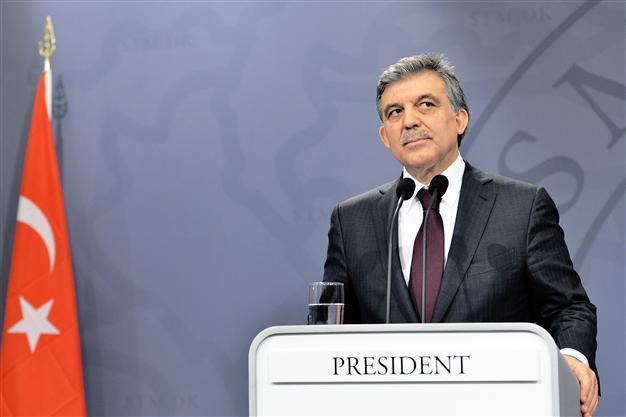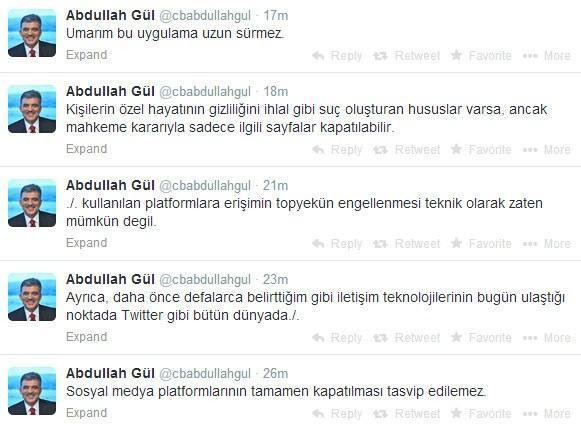Shutdown of social media 'cannot be approved,' President Gül writes on Twitter
ISTANBUL

President of Turkey Abdullah Gul during a press meeting in Copenhagen on Tuesday, March 18. AP photo
President Abdullah Gül has publically expressed his disagreement with the access restriction of social media websites, in his first remarks on the Twitter ban.“A total shutdown of social media platforms cannot be approved,” Gül tweeted via his own account on March 21.
Despite stressing that no such ban could be fully implemented, Gül expressed his hope that the government’s move would not last long.
“As I have said many times in the past, at the point where communication technologies have reached today it is technically impossible to entirely block access to social media platforms used across the world such as Twitter. I hope this practice will not last long,” he wrote.

Gül had assured that there was no question of blocking access to social media platforms or popular sharing websites such as YouTube, following the recent enactment of a controversial law increasing government control over the Internet.
Turkey blocked access to Twitter late March 20, hours after Prime Minister Recep Tayyip Erdoğan vowed to close down the social media platform.
“We now have a court order. We’ll eradicate Twitter. I don’t care what the international community says. Everyone will witness the power of the Turkish Republic's state,” Erdoğan had said at a campaign rally in the western city of Bursa, triggering uproar 10 days before the upcoming local elections.
Step ‘to protect privacy’
In an official statement on March 21, the Turkish Telecommunications Authority (TİB) said it had engaged in such drastic measure to protect “private life privacy.”
“Twitter has been blocked as a preventive measure in order to prevent future damage to our citizens as a last resort,” the statement said, adding that the microblogging website had previously ignored several Turkish court orders to withdraw online content.
“Despite all our good-willed efforts for the implementation of court orders, Twitter showed indifference to those rulings and refused to recognize them,” it added.
Last month, a new law on the Internet was passed by Parliament sharply increasing the TİB’s competences. The bill was eventually amended after an intervention from President Gül, following a huge outcry both within and outside Turkey.
Meanwhile, Deputy Prime Minister Ali Babacan said the government was "forced" to take such a decision.
“I don’t think [the block of access] will last for long. But if the law is breached, something has to be done,” Babacan told private broadcaster CNBC-e on March 21.
Finance Minister Mehmet Şimşek, an enthusiastic Twitter user, denied that the access ban was the result of a “prohibitive mindset.” “If that was the case, it would be implemented on other social media as well. This is the implementation of a court ruling,” Şimşek said.
The most original explanation attempt came from Forestry Minister Veysel Eroğlu, who argued that blocking Twitter would ensure a more peaceful election. “You know that sensational and deceitful news was being spread because of the elections. But elections should take place in a healthy manner. People are being provoked,” Eroğlu said.
















